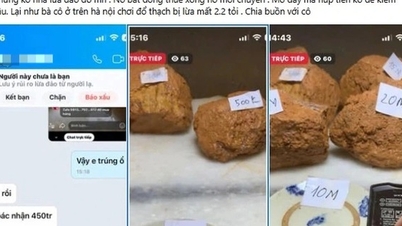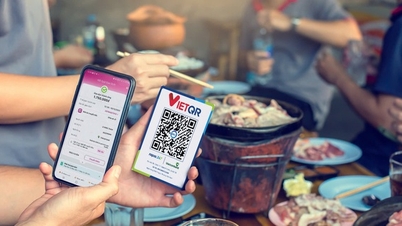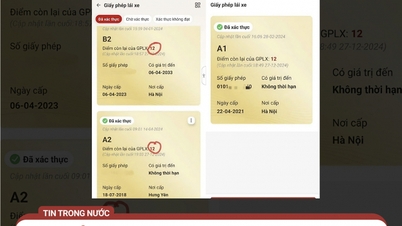LPBank said that the situation of fraud impersonating bank and credit institution brands is becoming more complicated in many different forms, with attack scenarios and methods constantly changing.
High-tech criminals create a series of fake websites and emails that are similar to those of banks and financial institutions to offer illegal services related to credit cards such as: limit increase, cash withdrawal, card maturity, installment payment, etc. Then, they instruct customers to access fake websites and install fake applications to take control of mobile devices.
"The fake application has an interface quite similar to the official application and website of the credit institution. The impostors often ask customers to pay some fees to edit information, approve disbursement of fake loans for the purpose of fraud and appropriation of money" - LPBank warned.

Cyber attacks target organizations in the financial and securities sectors as well as individual customer accounts. Illustration photo AI
Another more sophisticated trick is to send fake banking app warnings, fake call screens, and messages to lure customers into performing certain actions, with the purpose of obtaining login information, including their faces, thereby bypassing biometric security. "Customers need to be vigilant if they see strange signs such as the phone consuming battery power, overheating, displaying strange notifications, using a lot of data, or applications asking for too many permissions..." - LPBank recommends.
Home Credit Finance Company also warned of a new scam called "borrowing money using iCloud". With this scam, borrowers do not need to meet in person, do not need collateral, and disburse quickly. Users only need an iCloud account (an application built into each Apple device, with the function of managing photos, files, notes, etc. and other data) and can easily borrow from a few million to a few tens of millions of VND.
"Customers are required to log in and synchronize the iCloud account provided by the subject on the victim's phone before making a loan contract. After following the request, the customer will have control of the phone and personal data taken over by the subject, will not receive the disbursement as promised and will be asked for ransom to regain control of the phone" - Home Credit warned.
According to a reporter from Nguoi Lao Dong Newspaper, despite repeated warnings, many people are still being scammed out of money ranging from several million to hundreds of millions of dong, with increasingly sophisticated tricks that play on users' psychology.
Source: https://nld.com.vn/nguoi-dung-iphone-can-luu-y-dieu-nay-de-tranh-bi-lua-dao-196240508094023889.htm


![[Photo] Prime Minister Pham Minh Chinh works with the Standing Committee of Thai Binh Provincial Party Committee](https://vphoto.vietnam.vn/thumb/1200x675/vietnam/resource/IMAGE/2025/5/12/f514ab990c544e05a446f77bba59c7d1)

![[Photo] Prime Minister Pham Minh Chinh starts construction of vital highway through Thai Binh and Nam Dinh](https://vphoto.vietnam.vn/thumb/1200x675/vietnam/resource/IMAGE/2025/5/12/52d98584ccea4c8dbf7c7f7484433af5)
![[Photo] Buddha's Birthday 2025: Honoring the message of love, wisdom, and tolerance](https://vphoto.vietnam.vn/thumb/1200x675/vietnam/resource/IMAGE/2025/5/12/8cd2a70beb264374b41fc5d36add6c3d)




























































































Comment (0)